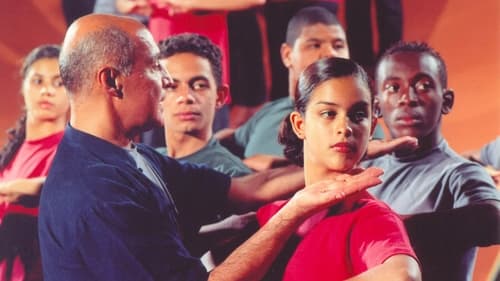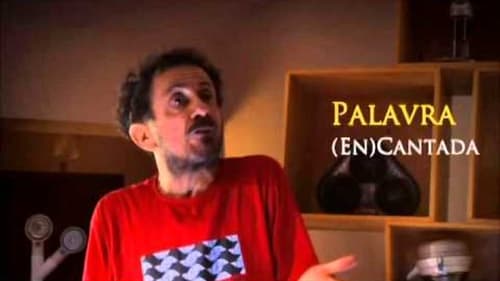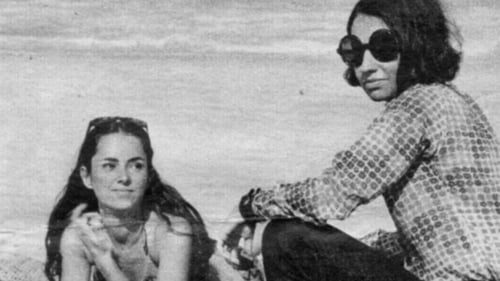Helena Solberg
Birth : 1938-06-17, Rio de Janeiro, Rio de Janeiro, Brazil

Director

Producer
Sixty-six adolescents, residents of Favela da Maré, were selected to participate in a dance show led by the choreographer Ivaldo Bertazzo, which incorporated their own daily experiences. Ten years later, directors David Meyer and Helena Soldberg search for some of the participants of this experience.

Director
Sixty-six adolescents, residents of Favela da Maré, were selected to participate in a dance show led by the choreographer Ivaldo Bertazzo, which incorporated their own daily experiences. Ten years later, directors David Meyer and Helena Soldberg search for some of the participants of this experience.

Director
Palavra (En)Cantada makes a journey in the history of the Brazilian songbook with a look at the relationship between poetry and music, sewing testimonials of great names of our culture, musical performances and amazing research of images.

Writer
The day-to-day life of a young girl in the town of Diamantina, Brazil, on the end of 19th Century, based on real life diaries.

Director
The day-to-day life of a young girl in the town of Diamantina, Brazil, on the end of 19th Century, based on real life diaries.

Director

Narrator
A biography of the Portuguese-Brazilian singer Carmen Miranda, whose most distinctive feature was her tutti-frutti hat. From her arrival in the US as the "Brazilian Bombshell" to her Broadway career and Hollywood stardom in the 1940s.

Producer
A biography of the Portuguese-Brazilian singer Carmen Miranda, whose most distinctive feature was her tutti-frutti hat. From her arrival in the US as the "Brazilian Bombshell" to her Broadway career and Hollywood stardom in the 1940s.

Director
A biography of the Portuguese-Brazilian singer Carmen Miranda, whose most distinctive feature was her tutti-frutti hat. From her arrival in the US as the "Brazilian Bombshell" to her Broadway career and Hollywood stardom in the 1940s.

Director

Director
In this film Indians—and only Indians—talk about the contemporary threats they are facing today. They are no longer the Conquerors or the American Cavalry. Now it is industrial development that is wiping out traditional land. Shot on three continents: the USA with the Hopi and Navajo; Amazonia, and on the Bolivian highlands, and in Geneva where Indians of the Americas come together to create an international indigenous network.

Director
In 1969, Fernando Gabeira was among terrorists who kidnapped Charles Burke Elbrick, then the U.S. Ambassador to Brazil. Eventually Gabeira was captured and tortured before being exiled from his homeland for eight years. He talks candidly about his experiences in captivity as well as the abduction and the motivation behind choosing Elbrick.

Director

Director

Director

Writer

Director

Writer
Considers the condition of women in continental America. Shows how women in countries such as Bolivia, Mexico, Argentina, and Venezuela are objecting to their traditional roles as wives and mothers and are striving for more control over their lives.

Director
Considers the condition of women in continental America. Shows how women in countries such as Bolivia, Mexico, Argentina, and Venezuela are objecting to their traditional roles as wives and mothers and are striving for more control over their lives.

Producer
A history of the feminist movement in the United States.

Director
A history of the feminist movement in the United States.

Editor
A group of school students sets up a rebellion that threatens to kill their teacher.

Producer
A group of school students sets up a rebellion that threatens to kill their teacher.

Writer
A group of school students sets up a rebellion that threatens to kill their teacher.

Director
A group of school students sets up a rebellion that threatens to kill their teacher.

Director
On screen, a bride gets ready for her wedding day. Off screen, middle-class young women from Rio de Janeiro share their experiences and impressions concerning virginity, marriage, sex and politics.











